Getting a good night's sleep is essential for physical and mental health, but it can sometimes be a challenge in people’s busy, stress-filled lives. While bedrooms are supposed to be tranquil sanctuaries or a place where one escapes the stresses of the day and recharges for the morning ahead, for many these rooms are anything but restful. Between the glow of electronic devices, the nagging thoughts of our to-do lists, and the discomfort of a too-hot or too-cold room, it's no wonder that millions of people struggle with sleep disorders and insomnia.
However, there may be a simple and natural solution to improve the quality of our sleep, and it has been right under our noses — or rather, on the nightstands. Having plants in bedrooms can create a sleep-conducive environment that promotes relaxation, reduces stress, and helps one wake up feeling refreshed and revitalized. Numerous studies have shown that incorporating plants into the bedroom environment can have a significant positive impact on sleep quality. The presence of plants helps to purify the air, reducing carbon dioxide levels and increasing oxygen while also removing harmful toxins.
Can Plants Really Benefit Your Sleep?
Nowadays, more and more people are becoming plant parents and sprucing up their homes with some of the best floral natural decor on earth. From the sweet-scented jasmine to English Ivy, adding plants to a room is one of the best-kept and least expensive secrets to a good night's sleep.
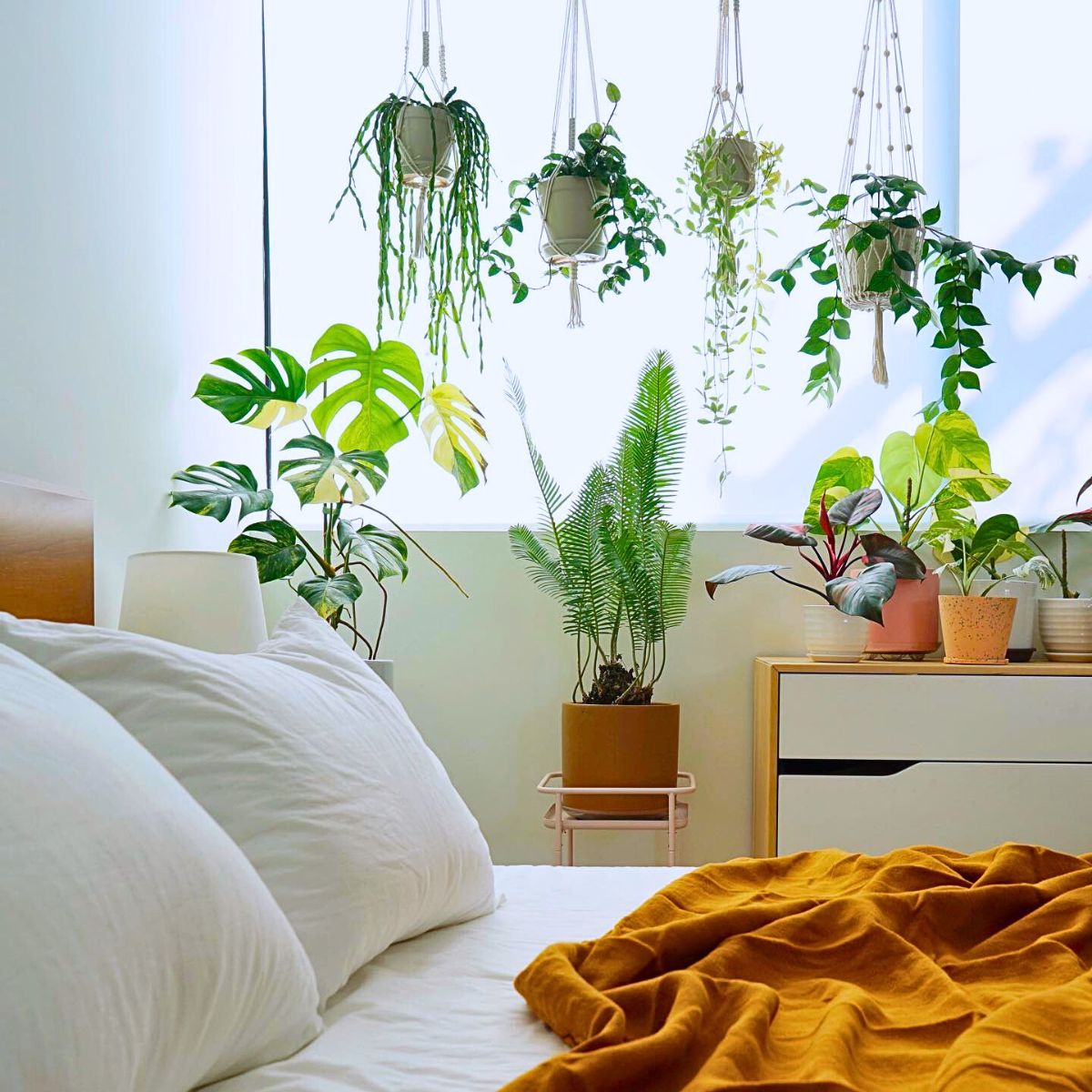
Photo by @cubehousejungle
What's more, plants are also an integral part of feng shui — the Chinese art of bringing balance and harmony into space or environment — as they brighten up the room and mood, by extension. This quality extends to the bedroom too!
Many common houseplants can help improve sleep quality. They promote a more calming and relaxing environment. When placed in the bedroom, these plants, essentially, help bring out a more peaceful, sleep-promoting atmosphere.
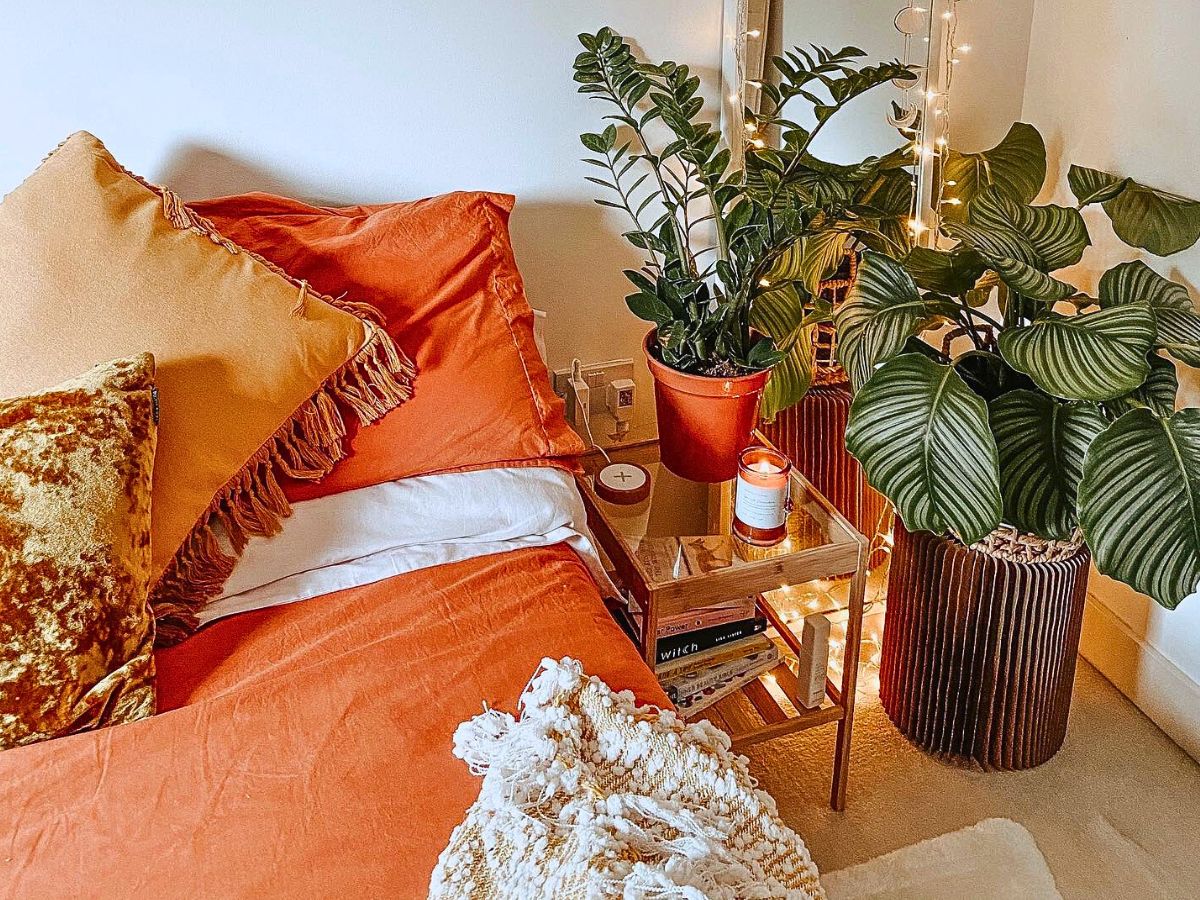
Photo by @perky.plants
They possess a natural aroma, enhanced oxygen production, and soothing properties, all of which are characteristics that make them excellent choices for better, more restful sleep.
The Best Plants For Better Sleep
With that in mind, it is therefore, really, helpful for your sleep and general well-being to keep your bedroom furnished with different varieties of bedroom plants. With them, you'll realize the beauty of a good night's sleep and a refreshed morning.
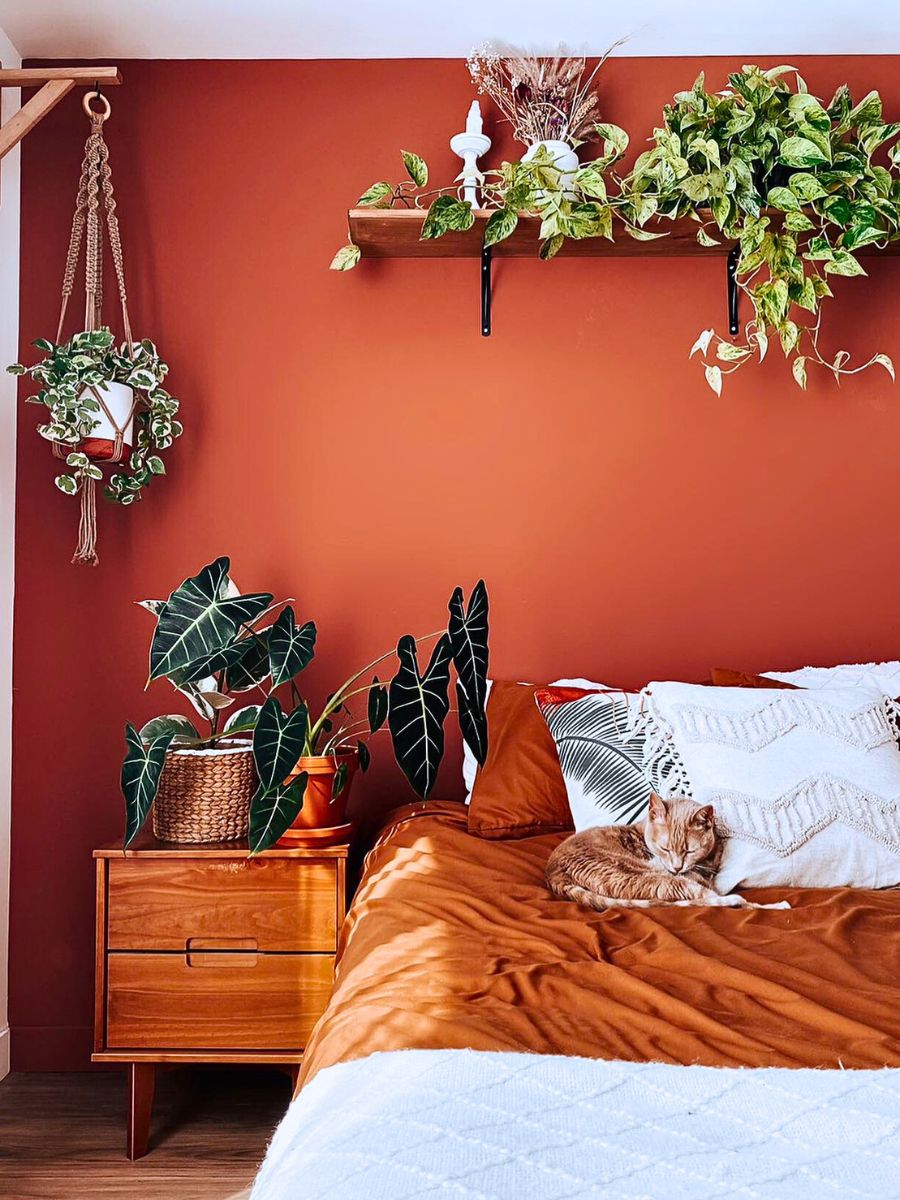
Photo by @laura_pigeon
Here are some of the best plants that’ll work alongside your cozy bed to contribute towards your beauty rest, and help you wake up in the morning feeling positive, refreshed, and ready to take on your day.
1. Lavender (Lavandula)
You’ve probably seen or heard of lavender essential oils or lavender bed sheet spritzer before. Interestingly enough, lavender has been popularly used for thousands of years in aromatherapy, cooking, or for perfume. Even so, the calming, floral aroma of lavender has been shown to have a sedative effect that can help reduce anxiety and promote relaxation.
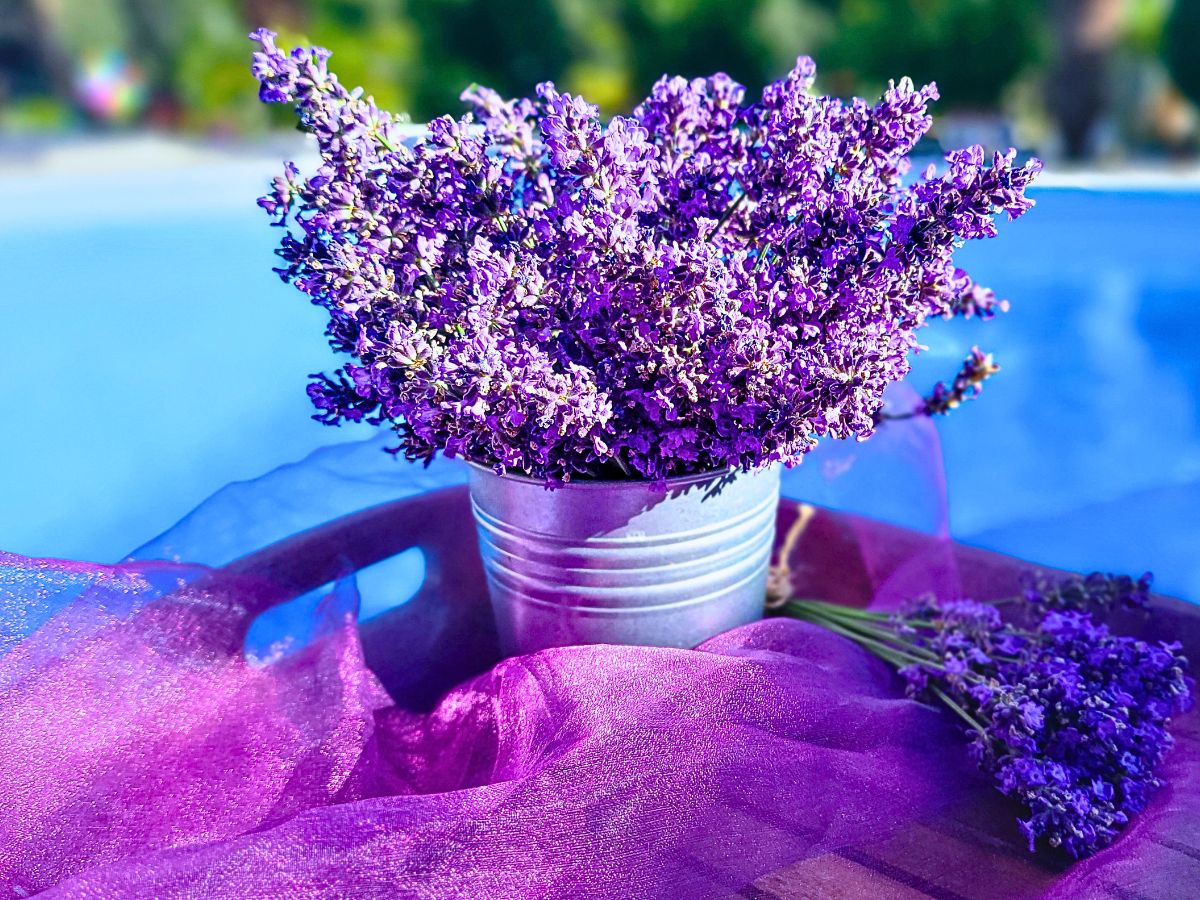
Photo by Van3ssa_
When placed in the bedroom, the fragrance from lavender plants can help create a more tranquil, sleep-inducing environment. Studies have found that inhaling lavender essential oils or having lavender plants nearby can increase sleep time, improve sleep quality, and reduce instances of insomnia. The relaxing properties of lavender are thought to be due to its ability to interact with the neurotransmitters in the brain, specifically the gamma-aminobutyric acid (GABA), that is responsible for regulating our sleep-wake cycles. This helps the mind and body transition into a more restful state, allowing for deeper, more restorative sleep.
In addition to its aromatherapeutic benefits, lavender plants also release oxygen at night, further enhancing the sleep-promoting qualities of having them in the bedroom. Their low-maintenance care requirements also make them an easy choice for improving bedroom ambiance.
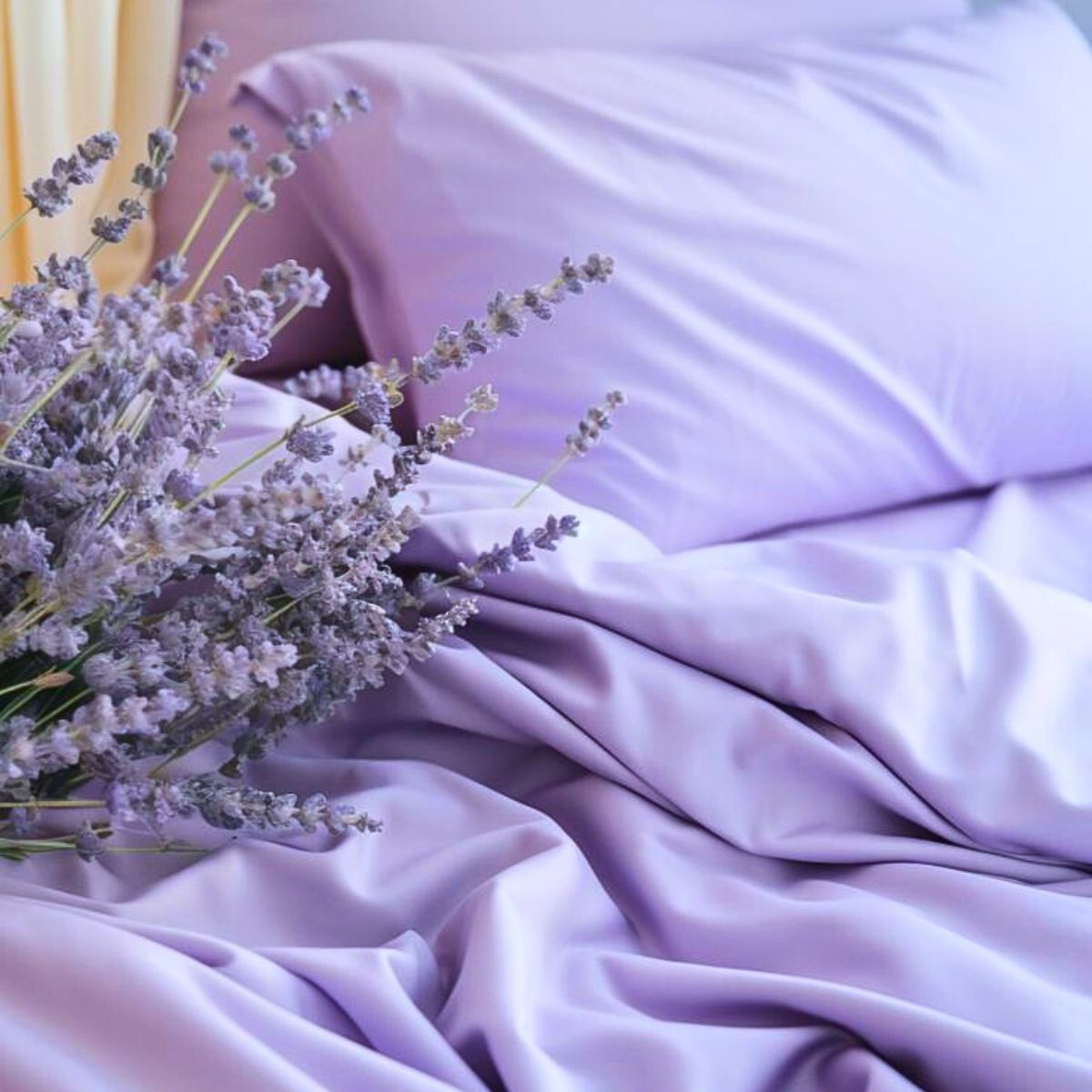
Photo by Zensage Home
For best results, place a potted lavender plant on a nightstand or side table near your bed so you can fully experience the calming effects of its fragrance as you wind down for sleep.
2. Jasmine
Jasmine is a dainty white flower with a pale yellow center, and its sweet-smelling scent has been shown to promote more restful sleep. In a study by Dr. Bryan Raudenbush and his colleagues at Wheeling Jesuit University, participants who slept in jasmine-scented rooms received higher quality sleep than those who didn’t and even reported feeling more awake in the afternoon.
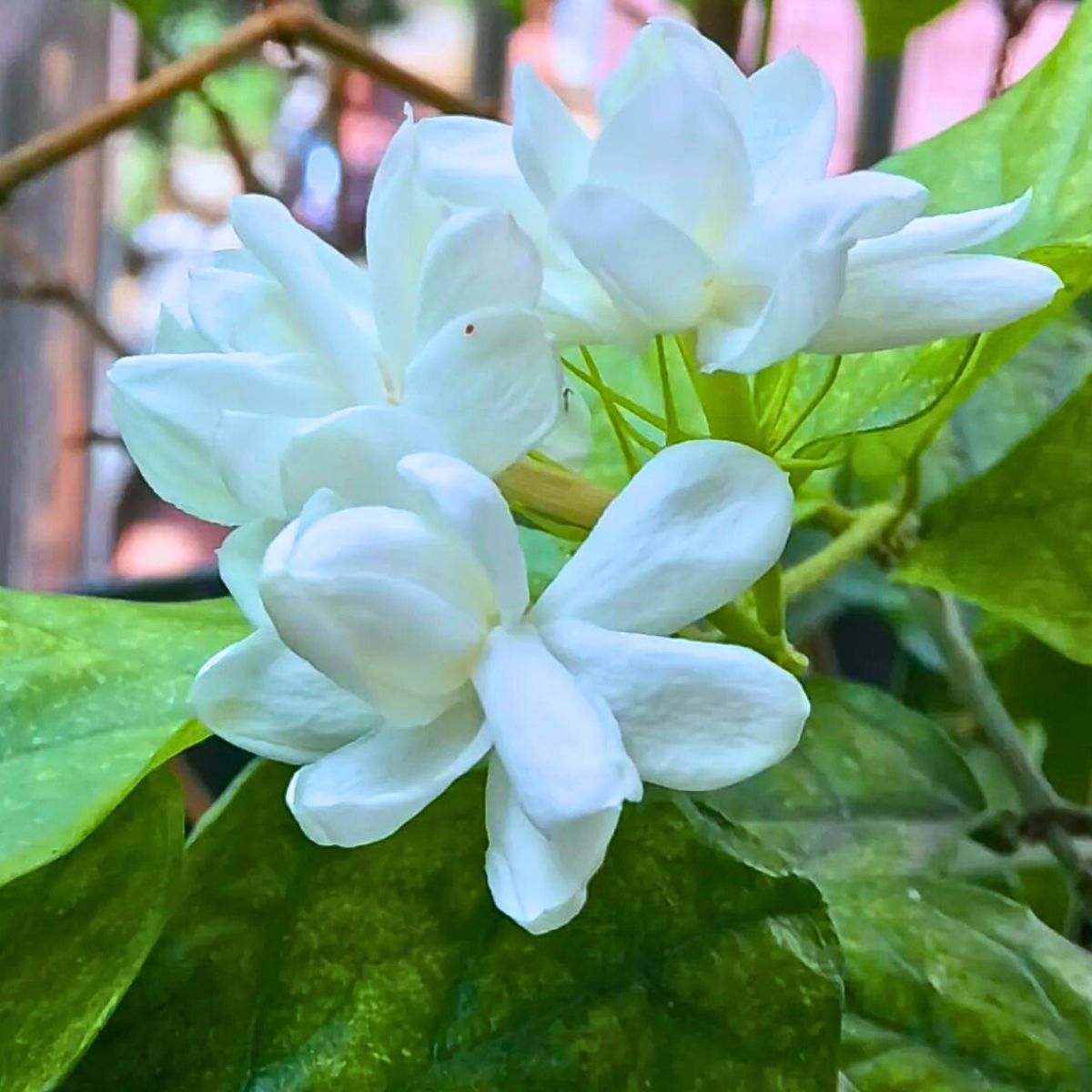
Photo by @jiasiminjasmine
Even more, studies have found that the scent of jasmine can have a calming, sedative effect, helping to reduce anxiety and promote relaxation before bedtime. When placed in the bedroom, the aroma of jasmine plants has been shown to increase sleep time and efficiency, allowing for deeper, more restorative sleep. The compounds in jasmine are believed to interact with neurotransmitters in the brain, similar to the way lavender works, to regulate sleep-wake cycles.
In addition to its sleep-enhancing aromatherapy benefits, jasmine plants also release oxygen at night, further purifying the air and creating a more tranquil environment for sleeping. Their delicate, visually appealing flowers can also contribute to a more calming, soothing ambiance in the bedroom.
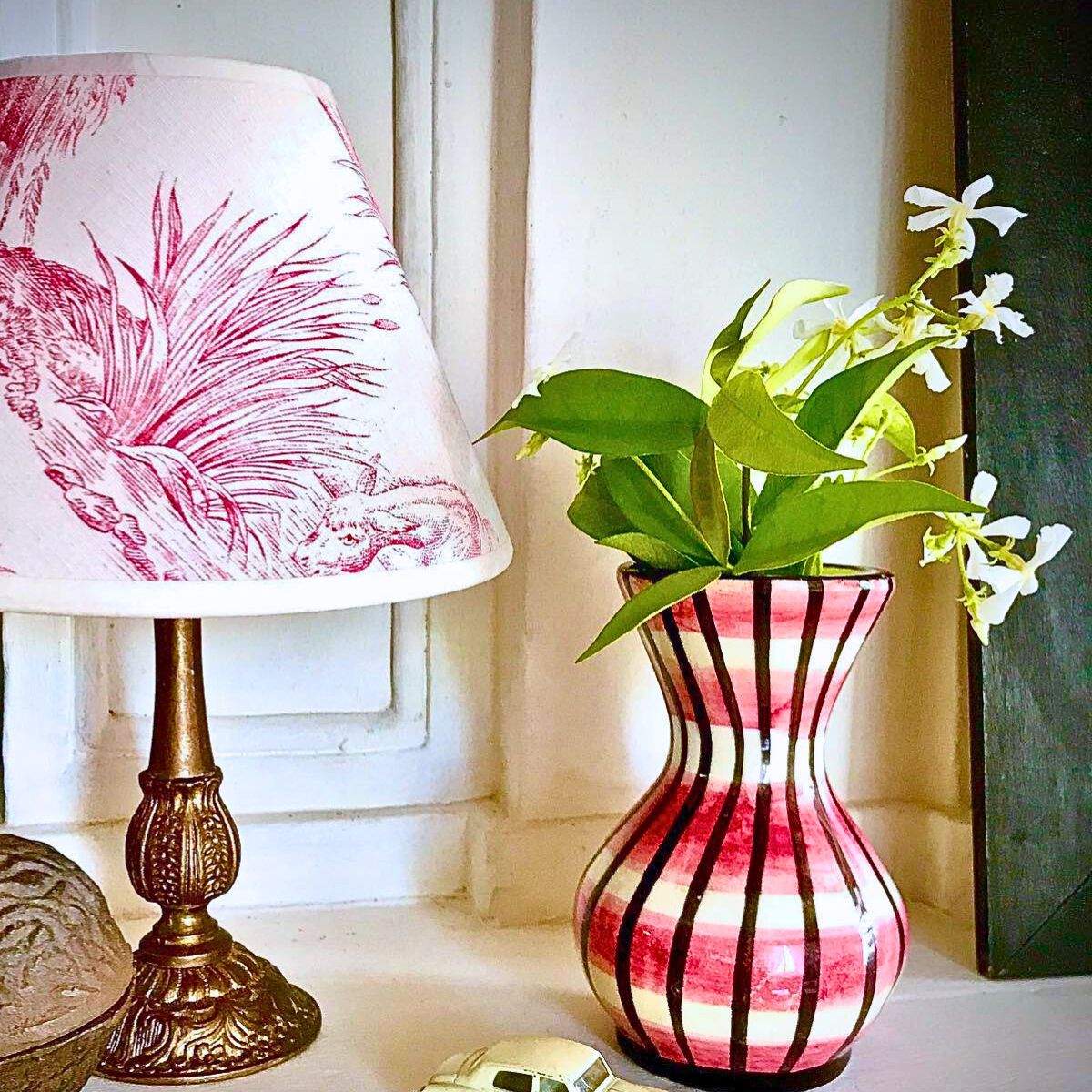
For optimal sleep-promoting effects, strategically placing one or more jasmine plants around the bedroom can help you wind down and fall asleep more easily.
3. Spider Plant (Chlorophytum Comosum)
This plant got its name from its long, spider-leg-looking leaves. In a study done by NASA on the health benefits of having plants inside a household, the spider plant, it emerged, was able to remove more than 90% of formaldehyde — a potential cancer-causing chemical commonly found in products like fillers and adhesives — from the air. It also takes on other odors or unwanted fumes from the air, allowing one to sleep more soundly throughout the night.
Thus, the humble spider plant offers an excellent choice for improving sleep quality in the bedroom, known for its air-purifying abilities and, equally, removing other toxins like benzene from the air. These air-cleansing properties can create a more oxygen-rich, pollutant-free environment, which is ideal for restful, restorative sleep, as per the studies that have found that improved indoor air quality from these plants can lead to better sleep quality.
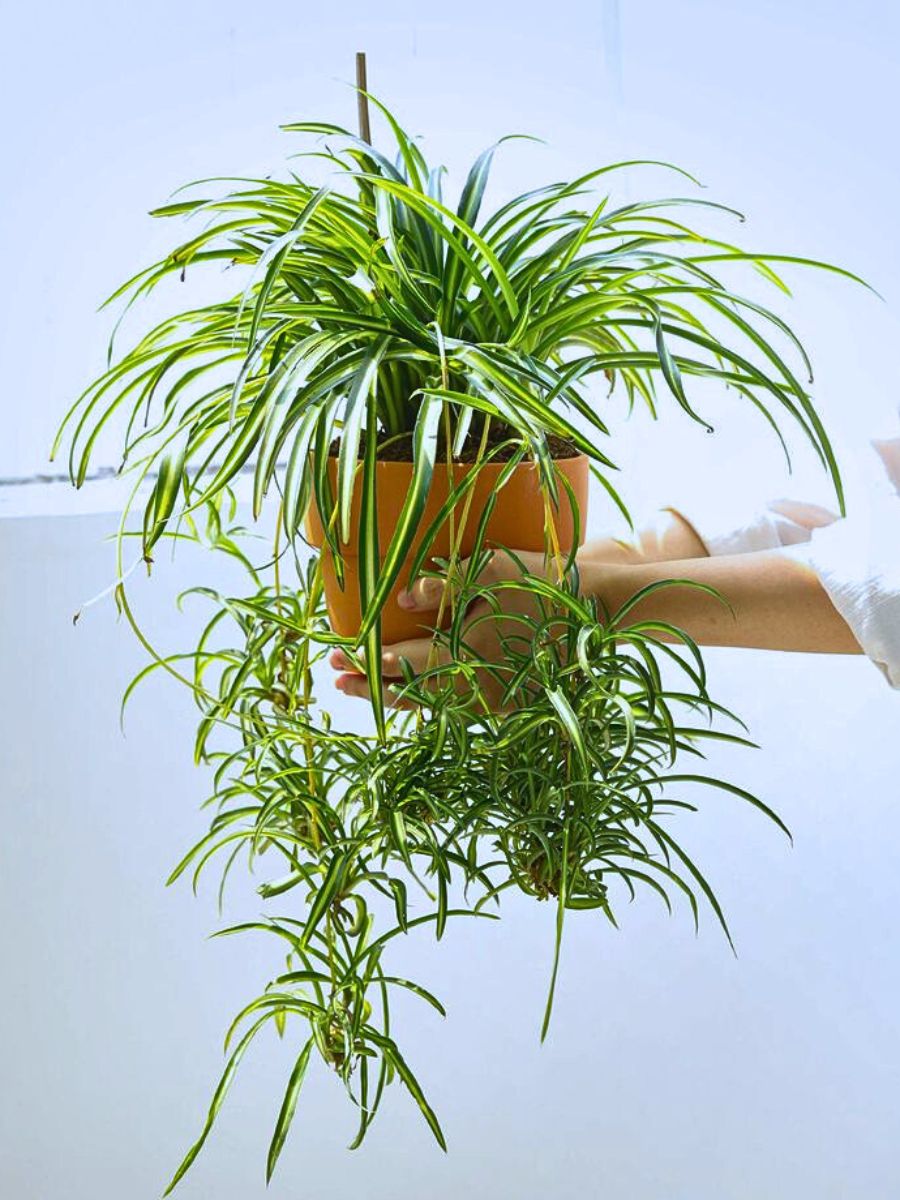
Photo by Succulents Box
The plant's low-maintenance nature and undemanding care requirements, also, make it an easy choice for enhancing the sleep-friendly atmosphere of the bedroom. Its graceful, cascading leaves can also contribute to a more calming, peaceful ambiance that promotes relaxation. One can, therefore, place one or more spider plants strategically around the bedroom to help them breathe easier and sleep better throughout the night.
4. Aloe Vera
We’ve always turned to aloe vera for its soothing effect on sunburns after spending a little too much time at the beach, but this trusty succulent can also be used as an air purifier in your bedroom. It absorbs carbon dioxide and releases oxygen during the nighttime, improving the air quality in your room while you sleep. For this reason, it’s not a huge surprise that it is considered one of the top plants for boosting the quality of air.
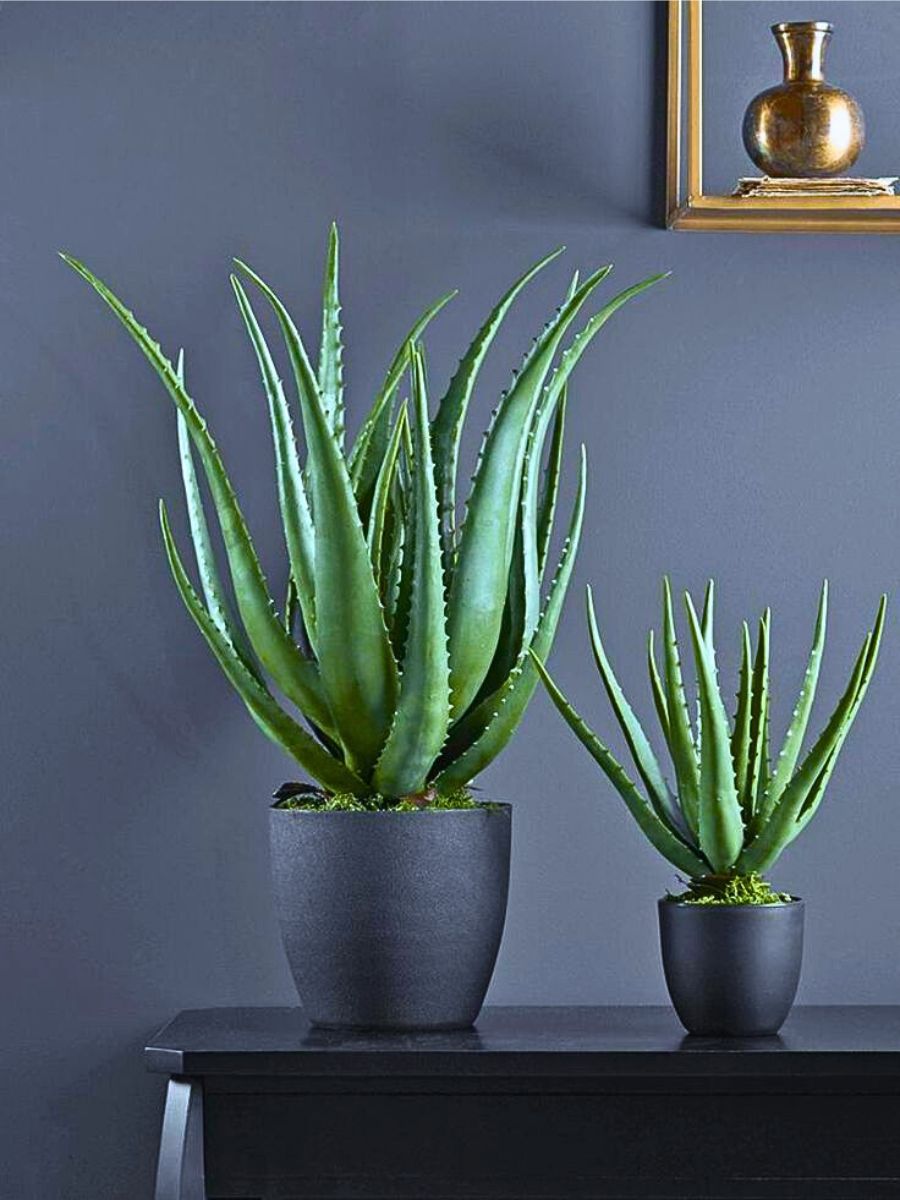
Photo by Uzair Chorra
In that context, one of the key benefits of aloe vera for sleep is its ability to improve air quality. Like the spider plant and similar others, aloe vera is effective at removing harmful toxins and chemicals, such as benzene and formaldehyde, from the air. This helps create a cleaner, more oxygen-rich environment that is conducive to deeper, more restorative sleep.
Additionally, the soothing, therapeutic properties of aloe vera may have indirect benefits for sleep. The plant's gel-like leaves contain compounds that have natural calming and anti-inflammatory effects. These are qualities that help reduce stress and anxiety, which are common contributors to sleep disturbances.
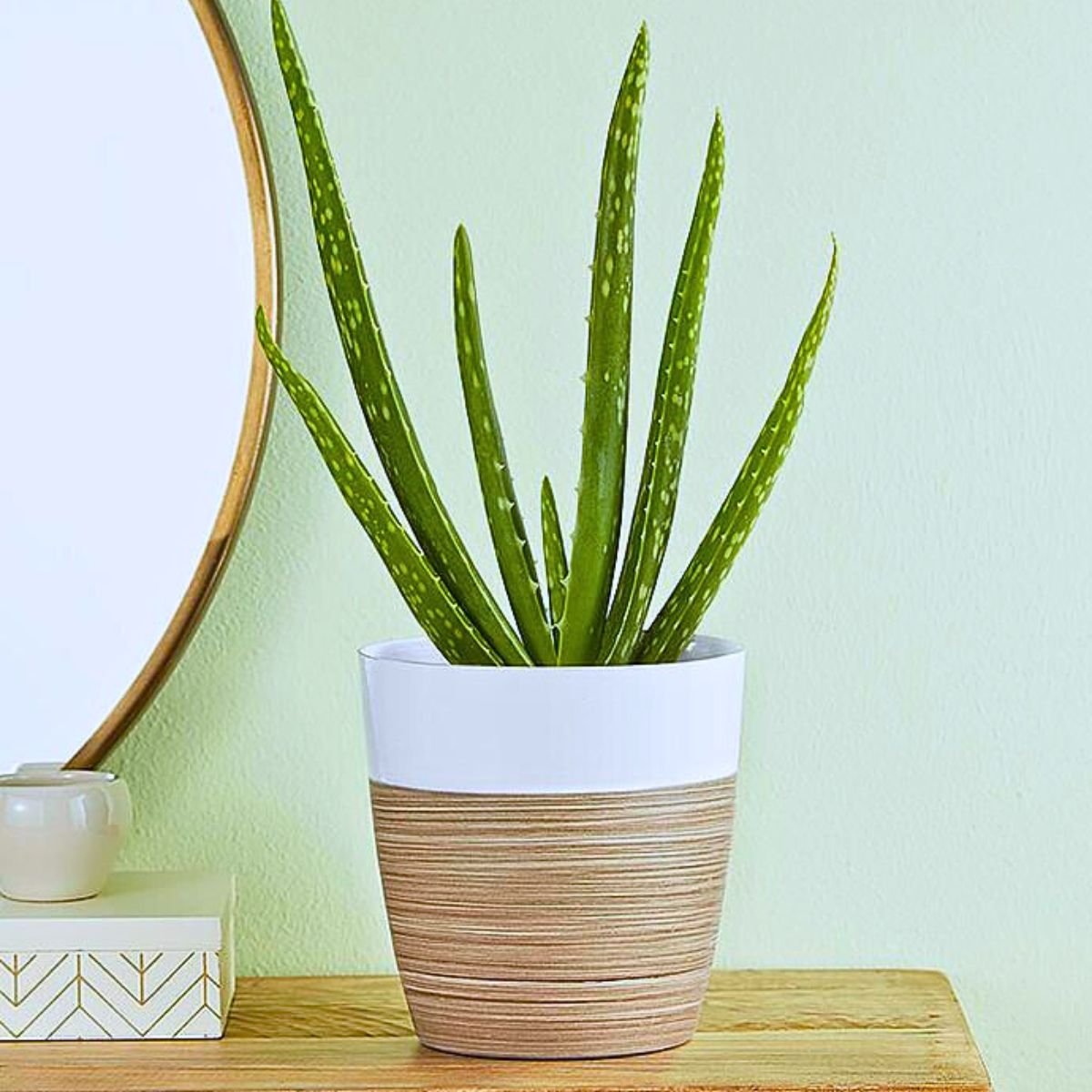
5. Gardenia
The rose-like Gardenia flower is harder to care for compared to some of the other plants on this list, but if you’re up for the challenge, it might be worth your while as its sleep-inducing powers have been said to be more effective than Valium.
Without a doubt, this fragrant flowering plant possesses a significant ability to promote relaxation and better sleep. The aroma of gardenia blooms contains compounds that have been shown to have a calming, sedative effect on the mind and body. In a study where researchers gave participants crocetin, an active compound in the gardenia flower, results showed that those who took the crocetin encountered fewer sleep interruptions during the night than those who took a placebo.
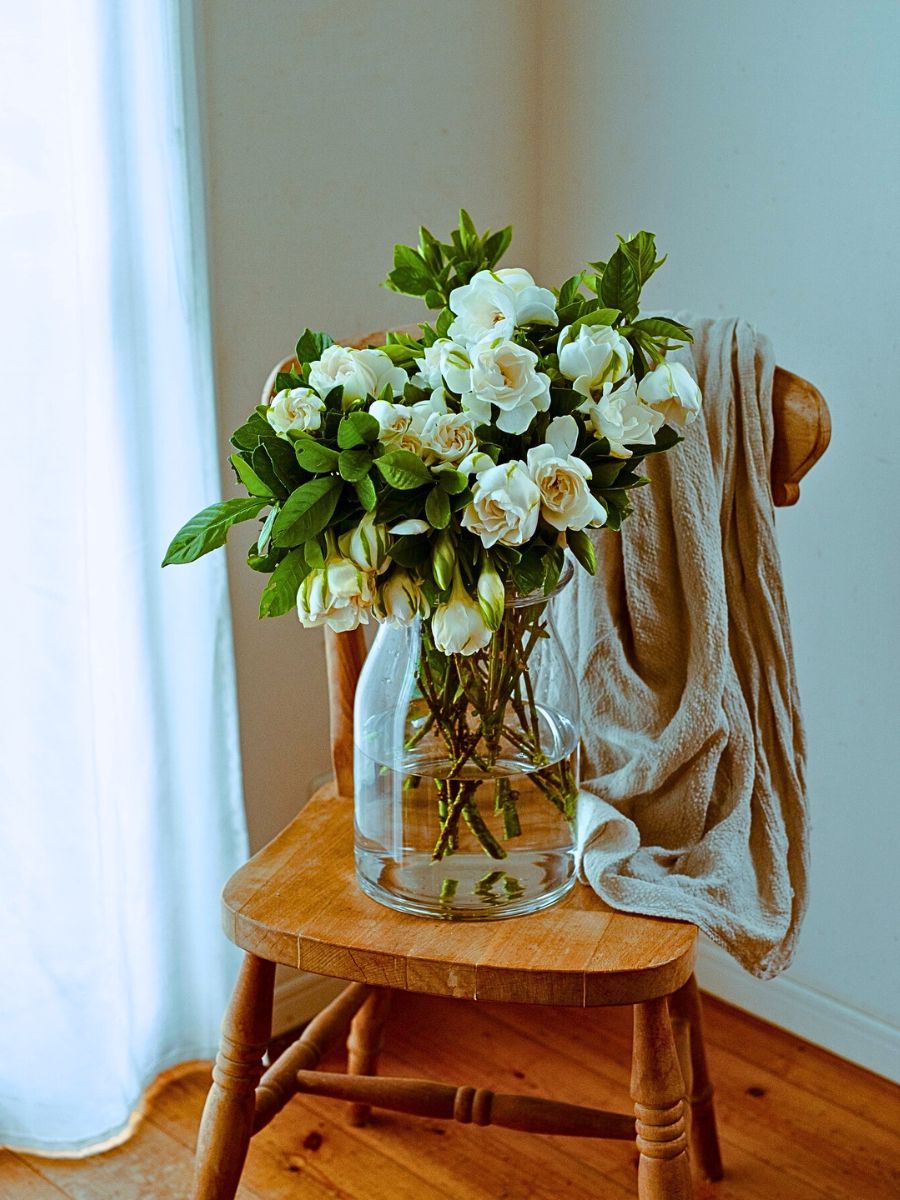
Photo by @nonihana
When placed in the bedroom, the flower's sweet, floral scent helps induce drowsiness and improve sleep quality. Studies have also shown that inhaling gardenia's natural aromatics can reduce anxiety, lower cortisol levels, and increase GABA activity in the brain. All these contribute to more restful, restorative sleep.
Aside from its aromatherapeutic benefits, gardenia plants also release oxygen at night, further purifying the air and creating a more tranquil sleep environment. Plus, their beautiful, white flowers can also add a soothing, elegant touch to the bedroom's decor.
6. Valerian (Caprifoliaceae)
The valerian plant (Valeriana officinalis, a.k.a. Caprifoliaceae) is a cluster of miniature blossoms and almost resembles the popular baby’s breath flowers usually seen bundled in with rose bouquets. For centuries, valerian root has been used to help cure insomnia and dates back to the times of ancient Romans and Egyptians. Turns out, they were actually onto something as research has shown that just the pure scent of the flower is relaxing enough to lull you to sleep.
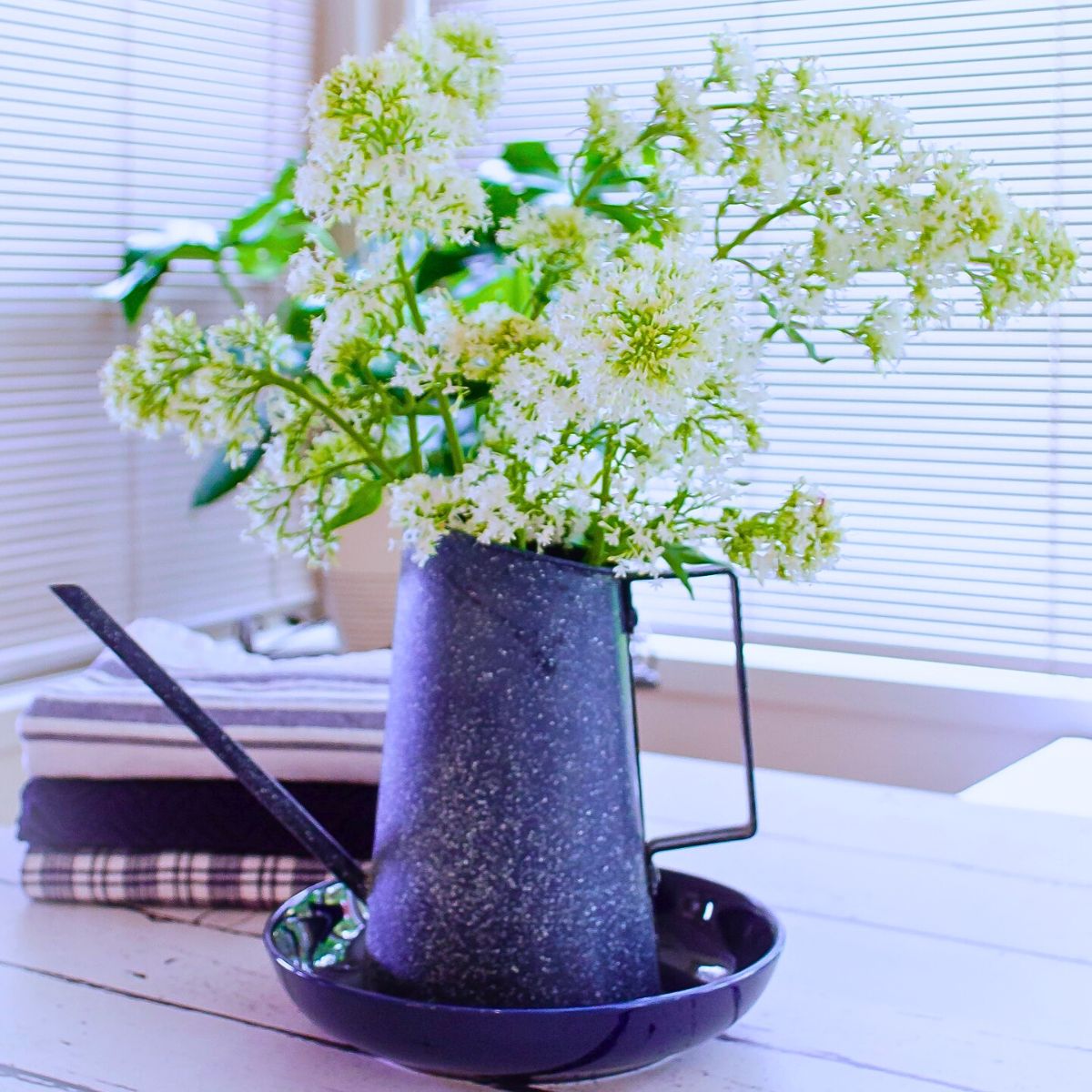
Photo by @lovelylifeglimpses
Unlike many other houseplants, it is the valerian's roots, rather than its foliage or flowers, that contain the active compounds responsible for its sedative effects. These compounds, including valerenic acid and GABA, have been shown to have a mild tranquilizing effect that can help reduce insomnia and improve overall sleep quality. When the roots of valerian plants are dried and the essential oils are inhaled, they can facilitate a more relaxed state and make it easier to fall and stay asleep.
While valerian plants themselves may not be the most aesthetically pleasing choice for the bedroom, strategically placing them or using valerian essential oils can create a sleep-friendly environment. Thus, their natural sleep-enhancing capabilities make valerian a beneficial addition to the bedroom for those seeking better, more restorative rest.
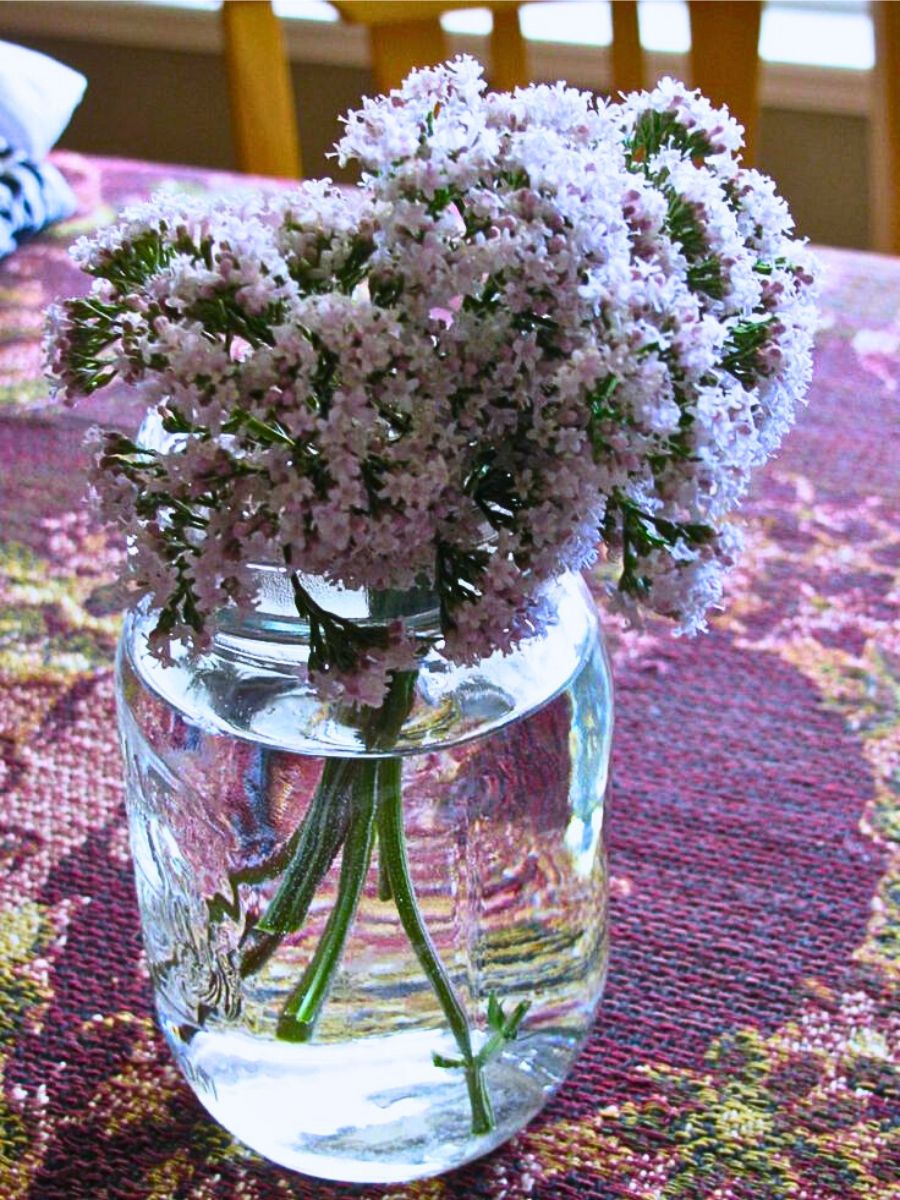
7. English Ivy (Hedera Helix)
If you’re looking to decorate your bedroom with a beautiful, cascading ivy plant, then English ivy is it. Not only does it give an elegant, yet rustic look to space, but the American College of Allergy, Asthma, and Immunology says English ivy removed 94% of airborne feces and 78% of airborne mold spores. This makes it an ideal plant for just about anyone to have in their bedroom, but especially folks who struggle with sleep due to allergies.
This versatile houseplant can contribute to better sleep by improving indoor air quality. As an effective air purifier, it is also known for removing harmful toxins like formaldehyde and benzene from the atmosphere. Reducing exposure to these pollutants, it creates a cleaner, more oxygen-rich environment in the bedroom, which is ideal for restful, uninterrupted sleep.
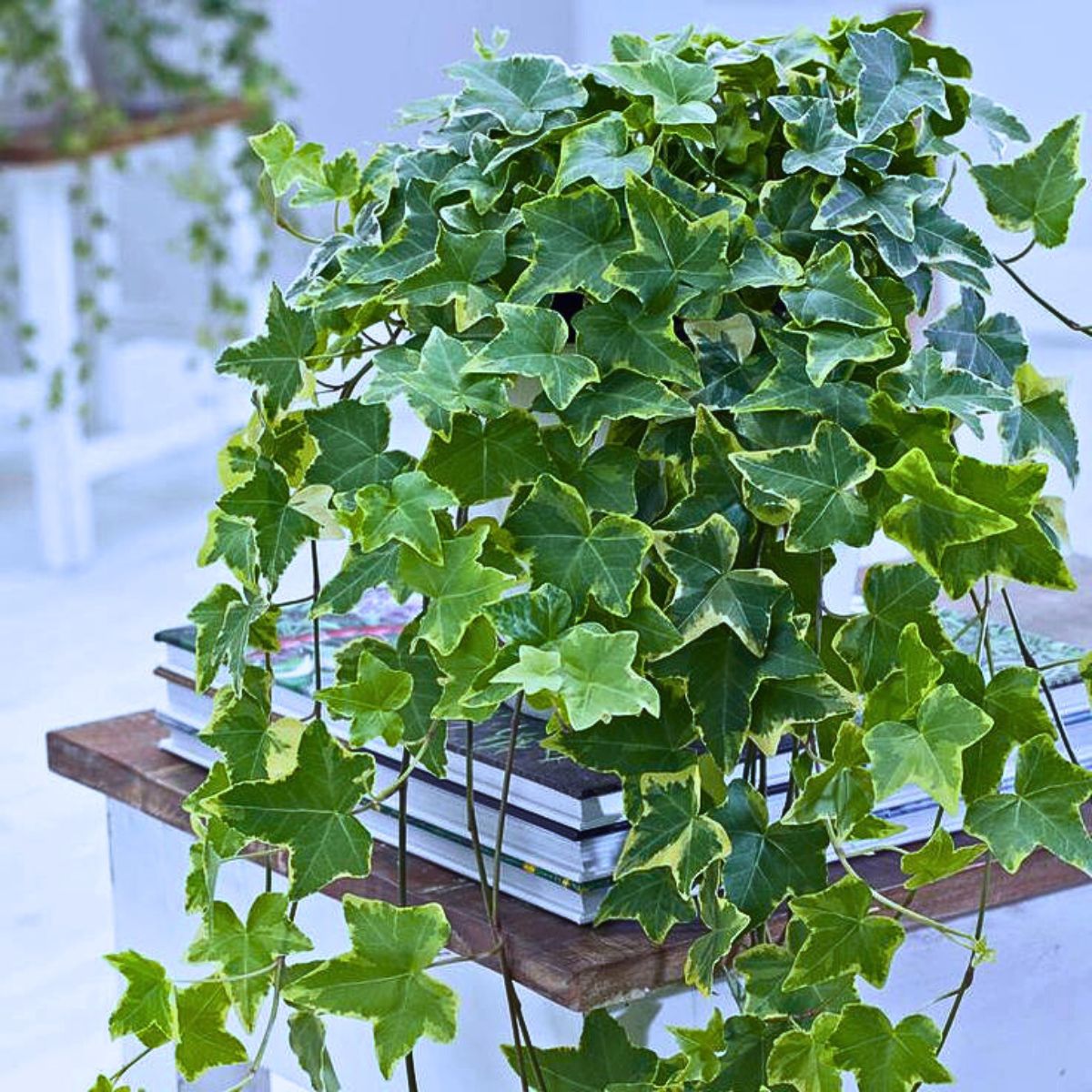
Photo by Mein schöner Garten
In addition, English ivy's trailing vines and lush green foliage can have a calming, nature-inspired effect that promotes relaxation. Thus strategically placing the plant in the bedroom can help one breathe easier and sleep better.
Feature image by @perky.plants, header image by tungnguyen0905.










